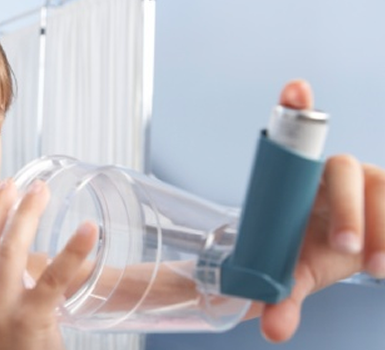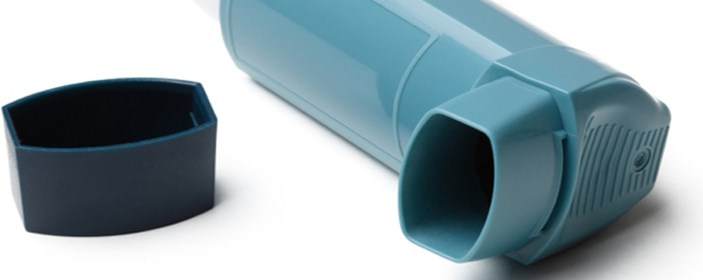Living with asthma!!! keep asthma symptoms at bay
- font size decrease font size increase font size
 Asthma is a problem that does not go away. It is a chronic disease, like diabetes and heart problems.
Asthma is a problem that does not go away. It is a chronic disease, like diabetes and heart problems.
It therefore requires long-term care and constant monitoring.
Remember that everyone who has asthma is not the same and the options for treatment are not the same.
So if you are asthmatic kindly partner with your doctor to develop a personalized asthma action plan.
This plan will not only help you know when and how to take your medicines but will also help you in identifying your asthma triggers and managing your disease better.
Asthma control depends on two things: being able to get good medical care and having good asthma management skills.
Medical care:

Pharmacologic management includes the use of control agents such as inhaled corticosteroids, inhaled cromolyn/nedocromil, long-acting bronchodilators, leukotriene modifiers, and igE antibodies.
Relief medications include short-acting bronchodilators, systemic corticosteroids, and ipatropium.
Patients may also opt for bronchial thermoplasty, which uses a catheter tipped with a wire probe to deliver thermal energy to the airway wall to reduce the mass of airway smooth muscle.
This is an effective treatment option for difficult-to-treat asthma and may help reduce maintenance treatment and healthcare utilization.
Note that it's very important to use the preventive treatment every day even if you're feeling well.
Apart from taking regular asthma medication, simple lifestyle and self-help measures that may help reduce symptoms and risk of having an asthma attack include:
Avoiding triggers
Asthma triggers are different, unique to every patient. Secondhand smoke, outdoor air pollution, mold, chemicals in the home and workplace, and radon can all cause or worsen lung condition.
Take care in cold weather
Cold air is a major trigger of asthma symptoms, such as wheezing and shortness of breath.
Prevent infection
Infections linked to influenza, colds, and other viruses trigger asthma.
You can keep infections at bay by:
-Washing your hands often with soap and water. Alcohol-based cleaners are a good substitute if you cannot wash.
- -Avoiding crowds during the cold and flu season.
-Maintaining a good oral hygiene. The germs in your mouth can lead to infections. Brush your teeth at least twice a day and see your dentist at least every 6 months.
-Getting vaccinated every year against influenza. Find out if the pneumonia vaccine is right for you.
-If you get sick,stay home from work or school until you are feeling better.
Eat healthily
Obesity is associated with more severe asthma so you want to take steps to maintain a healthy weight.
Specific foods you eat may have a direct impact on your asthma. If you are allergic to certain foods, you should avoid them as they can trigger asthma symptoms.
Include vitamins C and E, beta-carotene, flavonoids, magnesium, selenium and omega-3 fatty acids in your diet. They are antioxidants that lower rates of asthma, by protecting cells from damage.
Eating the right nutrients also helps your body fight the respiratory viruses that often trigger attacks.
However, before you make any big changes to your eating habits, ensure that you talk to your health care provider first.
Don't Let Asthma Get in the Way of Everyday Life
Asthma doesn't have to prevent you from exercising. If it does prevent you from participating fully in activities, talk to your doctor who will recommend a small change in your asthma action plan needed to provide relief during exercise or activity.
Activities that involve short, intermittent periods of exertion are generally well tolerated.
You may participate in swimming, volleyball, gymnastics, baseball, wrestling outdoor and indoor biking, aerobics, walking, or running on a treadmill.
Its important to adhere to the following when exercising, because exercise can trigger an attack.
- • Always use your pre-exercise asthma inhalers before beginning to exercise.
- • Perform warm-up exercises and maintain an appropriate cool-down period after exercise.
- • If the weather is cold, exercise indoors or wear a mask or scarf over your nose and mouth.
- • If you have allergic asthma avoid exercising outdoors when pollen counts are high
- • Restrict exercise when you have infections like a cold/flu.
- • Exercise at a level that is appropriate for you.
Stress Free
Athough stress does not cause asthma, stress and asthma are definitely linked. While stress is part of everyday life, there are ways to avoid it by becoming more time-efficient, delegating and setting priorities.
Its equally important to
- - identify causes of stress and then try to resolve the stressors.
- -Sugar, caffeine and alcohol can all raise stress levels, so avoid them.
- -Try to breathe from the diaphragm as often as possible and pay steady attention to the breath.
- -Asthma and anxiety make up a vicious cycle, one that can spiral downward quickly. In a panic or anxiety attack, breathe slowly and deeply through the nose.
- -Daily physical activity is a good way to work off anxiety. Relaxation techniques, such as deep breathing, guided imagery, progressive muscle relaxation, meditation, and yoga, can also help lower stress levels.
- -Poor sleep, or lack of sleep, leaves less energy and fewer emotional and physical resources to cope with stress.
- -Set a time limit for worrying
Cease smoking
Smoke acts as an irritant and can trigger asthma attacks . Smoking exacerbates your asthma symptoms -- coughing, increased mucus, and wheezing.
Go for Regular check-ups
Regular check-ups are an important part of disease prevention, even when you are feeling well.
Monitoring
Keep track of your symptoms and make use of a peak flow meter. If you need to adjust your daily medication for asthma, a peak flow meter can be an important part of your asthma management plan.
Monitoring your symptoms and lung function will help you maintain a normal and healthy lifestyle.
